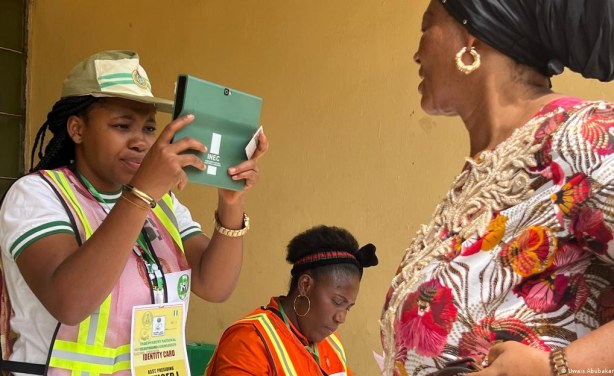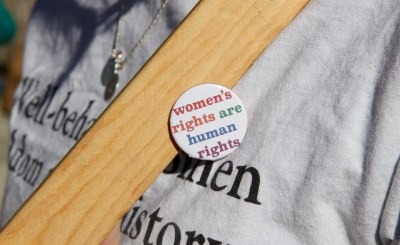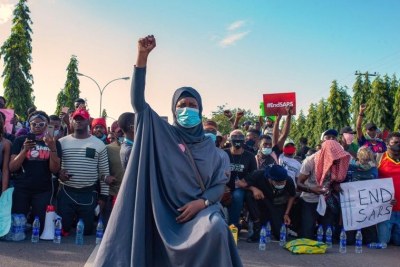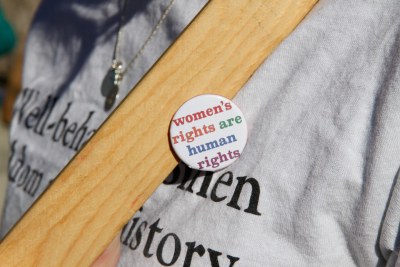-
Nigeria: Despite Setbacks, Nigerians Should Be Proud of 2023 Elections - British Envoy
Daily Trust, 15 March 2023
The outgoing British High Commissioner to Nigeria, Catriona Laing, yesterday said Nigerians should be proud of the 2023 presidential and National Assembly elections despite some… Read more »
-
Nigeria: IWD 2023 - Nigeria Falling in Women's Political Participation
Premium Times, 10 March 2023
Despite excelling in the private sector, Nigerian women are underrepresented in elective offices. Read more »
-
Nigeria: A Key Election for Nigeria Raises a Rising Demand: Inclusion
USIP, 20 February 2023
After 24 years of civilian rule, Nigerians debate how to strengthen their democracy. Read more »
-
Nigeria: #NigeriaDecides2023 - Foreign Observer Groups Lament Poor Female Participation
Premium Times, 27 February 2023
Nigeria according to the Inter-Parliamentary Union women in politics report 2022 ranked 184 out of 192 for women's representation in the national parliament. Read more »
-
Nigeria: 24 Women Seeking to Be State Governors in Saturday's Elections
Premium Times, 14 March 2023
Twenty-four women are contesting in Saturday's governorship elections being conducted in 28 states Read more »
-
Nigeria: Gender Equality in Nigeria - Three Reasons Why Women Aren't Represented in Politics
The Conversation Africa, 19 February 2023
In March 2022, Nigerian women suffered backlash in their pursuit of gender equity. Five gender bills presented to the National Assembly were thrown out. Read more »
-
Nigeria: State of Women's Candidacy Ahead of 2023 Elections
Premium Times, 4 December 2022
Across the globe, Nigeria ranks extremely low in gender equality index ratings and this has been attributed by many, to the inherent culture, lack of internal party democracy, and… Read more »
Nigeria's Failure to Elect Women Deemed a Regressive Step
According to the UK's outgoing ambassador, Catriona Laing, the country's recent elections have resulted in a setback for the country's political progress, as the number of elected female representatives has decreased. Laing attributed this to the reluctance of men to share political power with women, which has caused Nigeria to fall behind in terms of global leadership and economic development. As a result, half of Nigeria's population is not being fully utilized to contribute to the country's growth.
Premium Times reports that Nigeria is moving in the wrong direction regarding women's participation in public life, despite global calls for improvement. Since 1999, only 38 women have been elected as senators and 119 as members of the House of Representatives, totalling 157 women out of the 469-member National Assembly. In contrast, 2,657 men have been elected during the same period, with 616 senators and 2,041 representatives.
In March 2022, Nigerian women suffered a backlash in their pursuit of gender equity. Five gender bills presented to the National Assembly were thrown out. The rejection of the bills showed that the assembly wasn't interested in gender parity in politics. It has 469 members - with only 21 of them women.
InFocus
-
Nigeria is Africa's most populous democracy but has among the lowest number of women in office in the world. Women make up about 49% of Nigeria's Read more »
-
Patriarchy is a socio-cultural system that privileges maleness over femaleness and enthrones masculine domination of women. This system is evident where authority is vested in men ... Read more »

An election official takes a photo of a voter in Nigeria's 2023 election.





